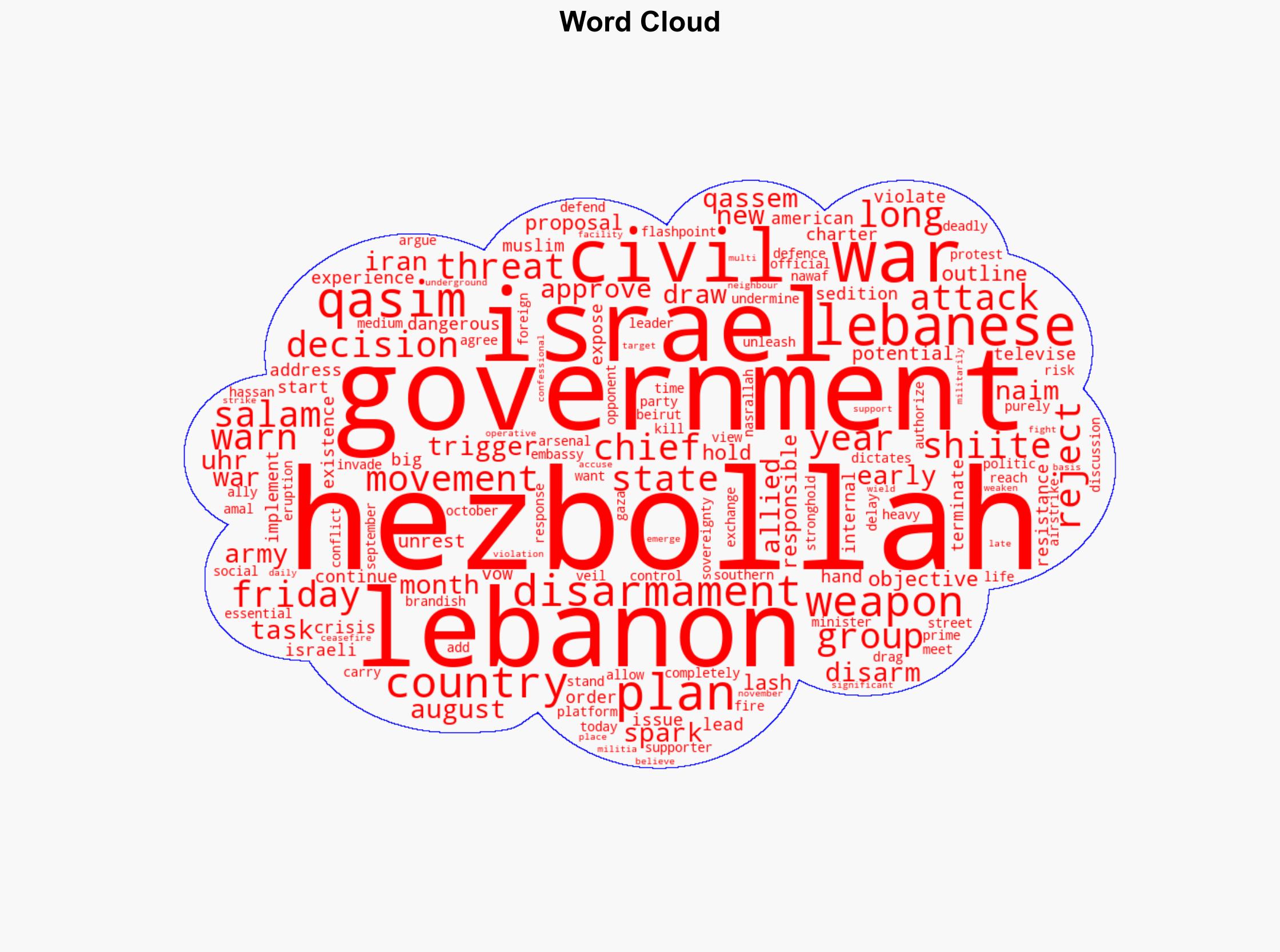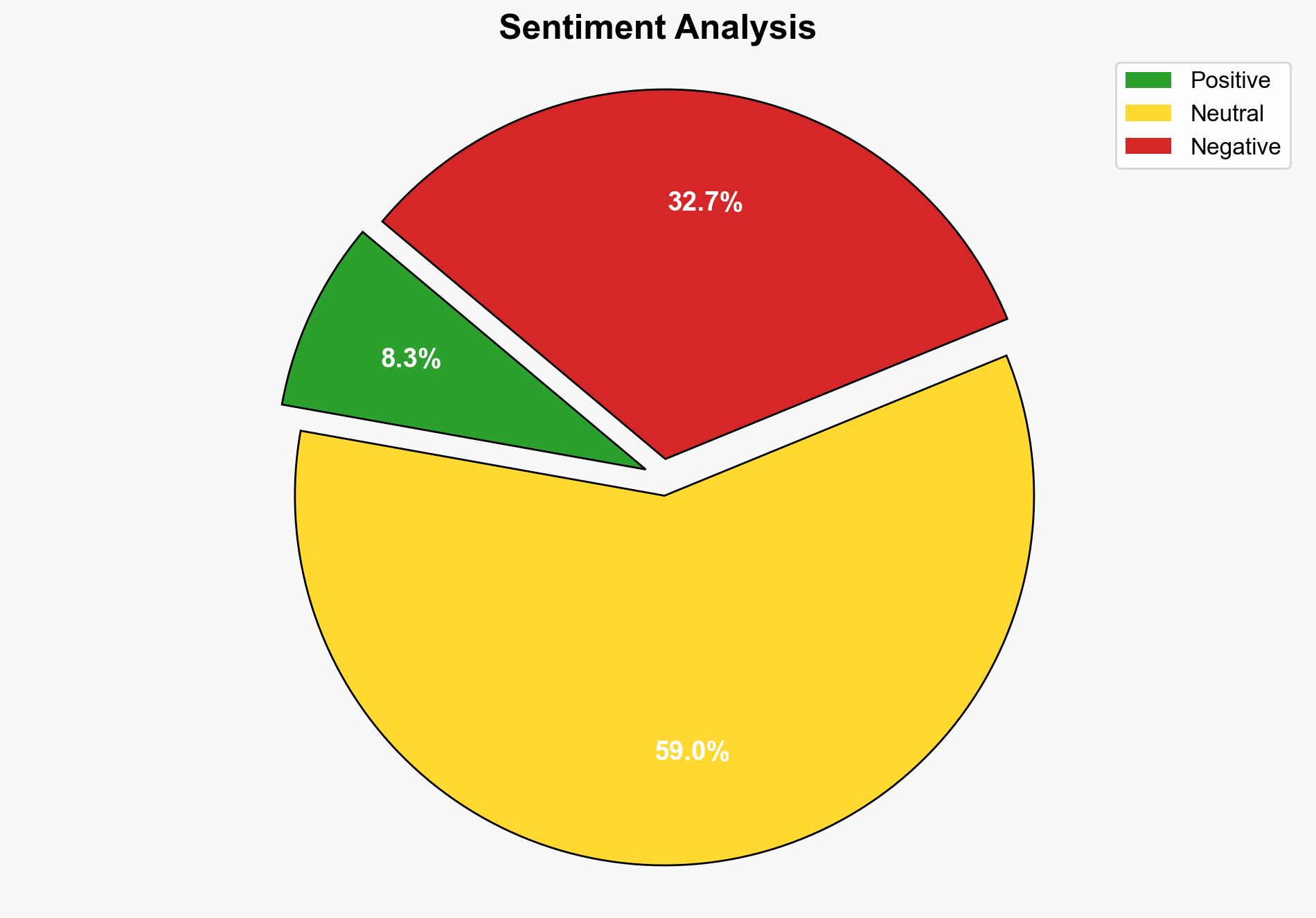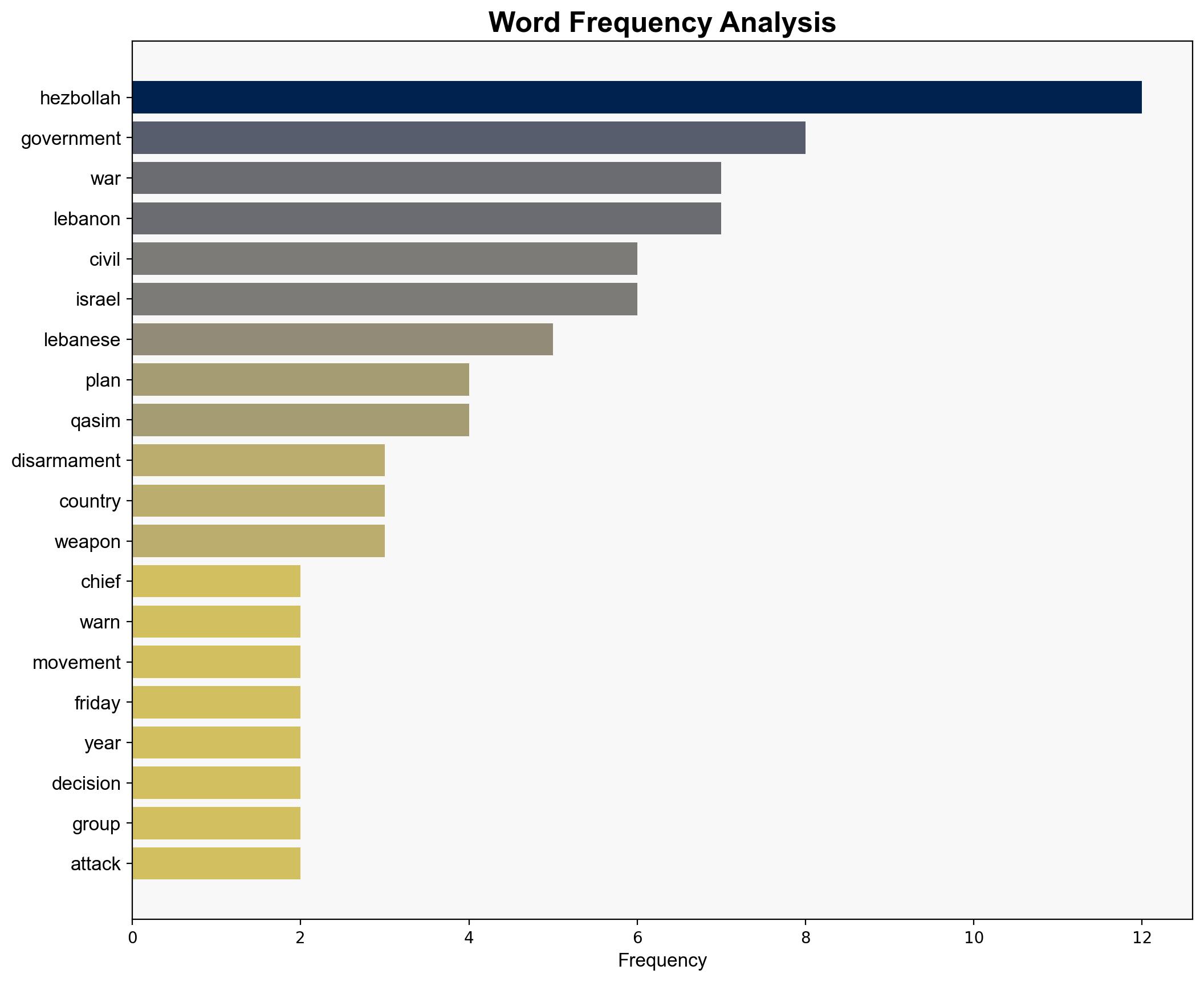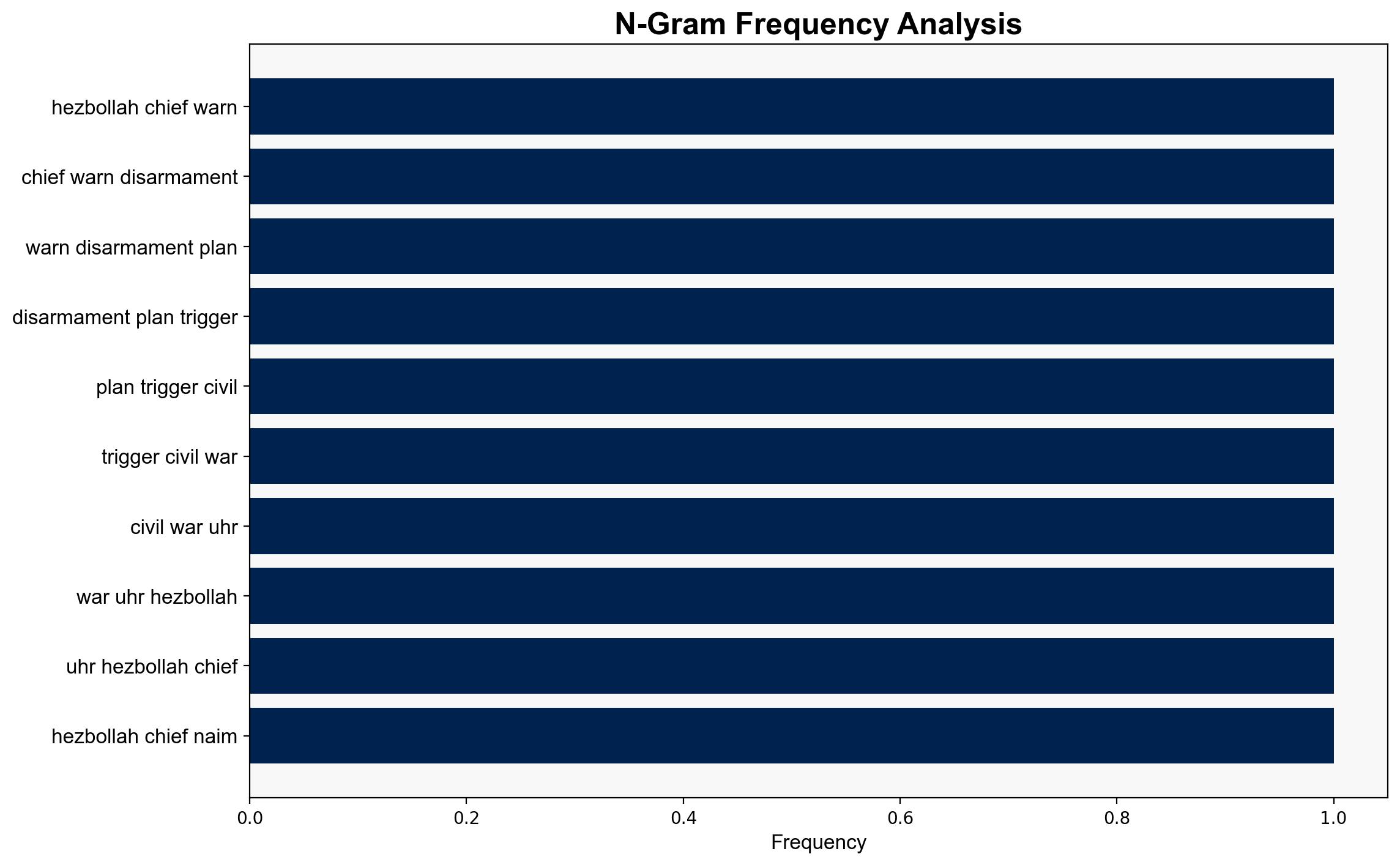Hezbollah chief warns disarmament plan could trigger civil war – Dpa-international.com
Published on: 2025-08-15
Intelligence Report: Hezbollah chief warns disarmament plan could trigger civil war – Dpa-international.com
1. BLUF (Bottom Line Up Front)
The most supported hypothesis is that Hezbollah’s warnings are a strategic maneuver to maintain its military capabilities and political influence in Lebanon. Confidence level: Moderate. Recommended action: Engage in diplomatic efforts to mediate between the Lebanese government and Hezbollah, while preparing contingency plans for potential unrest.
2. Competing Hypotheses
1. **Hezbollah’s Warning as a Strategic Maneuver**: Hezbollah’s warning is a calculated move to deter the Lebanese government from pursuing disarmament, thereby preserving its military strength and political leverage. This hypothesis is supported by Hezbollah’s historical resistance to disarmament and its framing of the issue as a defense against Israeli aggression.
2. **Genuine Threat of Civil Unrest**: The warning reflects a genuine concern that disarmament could destabilize Lebanon, potentially leading to civil conflict. This hypothesis considers the historical context of Lebanon’s civil wars and the sectarian tensions that could be exacerbated by disarmament efforts.
3. Key Assumptions and Red Flags
– **Assumptions**:
– Hezbollah’s military capabilities are integral to its political influence.
– The Lebanese government’s disarmament plan is perceived as influenced by external actors (U.S. and Israel).
– **Red Flags**:
– Lack of concrete evidence supporting the imminence of civil war.
– Potential bias in Hezbollah’s narrative framing the disarmament as externally driven.
– Inconsistent messaging between Hezbollah’s public statements and actions, such as delaying protests.
4. Implications and Strategic Risks
– **Geopolitical Risks**: Escalation of tensions between Hezbollah and the Lebanese government could destabilize the region, drawing in external actors like Israel and Iran.
– **Economic Impact**: Prolonged instability could further weaken Lebanon’s already fragile economy, exacerbating humanitarian issues.
– **Psychological Impact**: Heightened fear and uncertainty among the Lebanese population could lead to increased sectarian divisions and social unrest.
5. Recommendations and Outlook
- Engage in diplomatic dialogue with both Hezbollah and the Lebanese government to address security concerns and explore compromise solutions.
- Prepare contingency plans for potential civil unrest, including humanitarian aid and evacuation strategies.
- Scenario Projections:
- Best Case: Successful mediation leads to a phased disarmament plan with Hezbollah’s cooperation.
- Worst Case: Breakdown in negotiations triggers widespread violence and regional instability.
- Most Likely: Continued political stalemate with sporadic unrest, but no full-scale conflict.
6. Key Individuals and Entities
– Naim Qassem
– Nawaf Salam
– Hassan Nasrallah
– Hezbollah
– Amal Movement
7. Thematic Tags
national security threats, regional focus, geopolitical stability, conflict prevention




